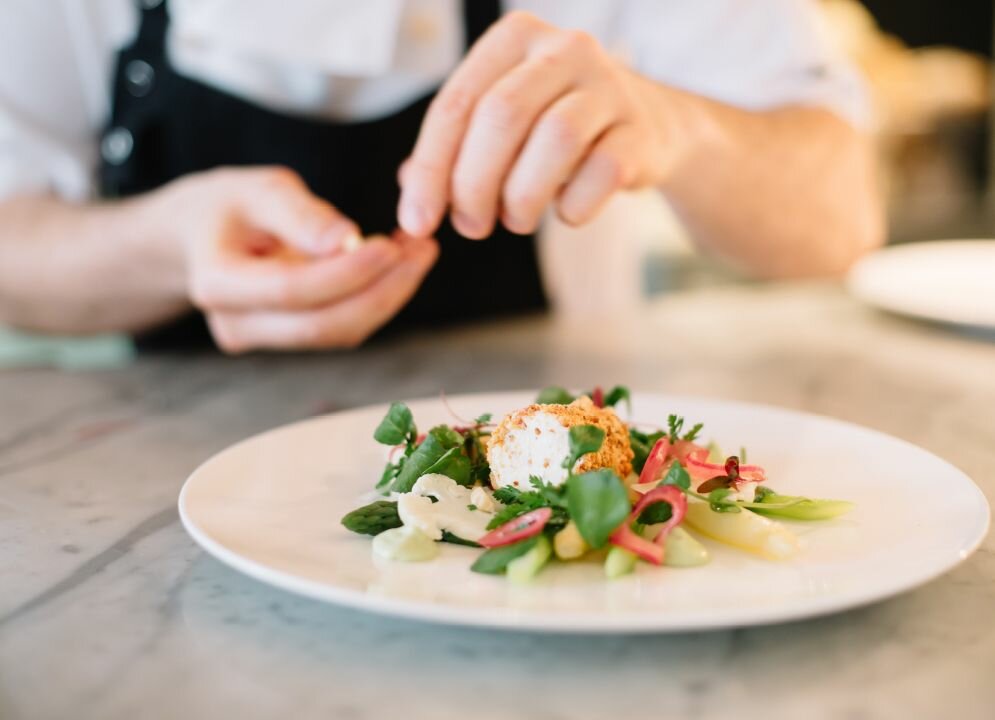Luxury Goods & Services
Luxury goods and services represent a dynamic and evolving sector catering to a discerning clientele seeking exceptional quality, exclusivity, and personalized experiences. Driven by increasing wealth, shifting consumer priorities, and a desire for unique indulgences, the luxury market continues to expand, with financial trends and consumer demand shaping its trajectory.
Rising Demand for Bespoke Experiences
Within this realm, a notable trend is the burgeoning demand for bespoke experiences. Luxury consumers are increasingly seeking out customized and personalized offerings that transcend the ordinary. This desire stems from a yearning for individuality, authenticity, and a sense of exclusivity that mass-produced goods cannot provide.
Personalization and Customization Trends
Personalization and customization are revolutionizing the luxury goods and services landscape. From tailor-made clothing and handcrafted jewelry to bespoke travel itineraries and curated experiences, consumers are demanding products and services that reflect their unique tastes and preferences.
Luxury brands are responding to this trend by offering a wider range of personalization options, allowing customers to create items that are truly their own. This level of customization not only enhances the perceived value of products but also fosters a deeper emotional connection between consumers and the brands they choose.
Shifting Priorities Towards Sustainability
Amidst this evolution, a significant shift is occurring in consumer priorities. Sustainability is increasingly becoming a defining factor in luxury purchasing decisions.
Millennials and Gen Z, who are poised to become the primary drivers of luxury spending, place a high value on ethical consumption and environmental responsibility.
This demographic expects luxury brands to align with their values, seeking out products and services that are made with sustainable materials, produced ethically, and have a minimal environmental footprint.
Luxury brands are responding by integrating sustainable practices into their supply chains, sourcing eco-friendly materials, and offering products with longer lifespans or repair options.
Technology’s Impact on Luxury
Technology’s rapid advancements are profoundly reshaping the luxury landscape, influencing both how goods are produced and consumed. From immersive virtual experiences to personalized online shopping platforms, technology is enhancing convenience, accessibility, and customization within the luxury market.
Digital Concierge Services & Personal Shopping Apps
Digital concierge services and personal shopping apps are at the forefront of this technological revolution. These innovative platforms provide luxury consumers with a seamless and personalized shopping experience. Through AI-powered algorithms and expert stylists, these services curate tailored recommendations, offer virtual styling consultations, and expedite the purchasing process.
They also provide access to exclusive products and experiences, often featuring limited-edition items or collaborations with renowned designers. By leveraging technology, luxury brands can connect with consumers in a more intimate and engaging way, fostering loyalty and driving sales.
Virtual Reality and Augmented Reality in Luxury Retail
Virtual reality (VR) and augmented reality (AR) are transforming the way luxury goods are experienced and purchased. VR allows customers to immerse themselves in virtual showrooms, try on clothes virtually, or explore exotic destinations associated with a brand. This technology creates an experiential layer that enhances engagement and fosters a deeper connection with products.
AR, on the other hand, overlays digital information onto the real world, allowing customers to visualize how luxury items would look in their own homes or try on accessories virtually through their smartphone cameras. These technologies bridge the gap between online and offline shopping, providing interactive and personalized experiences that drive desire and purchase intent.
Moreover, blockchain technology is poised to revolutionize authenticity and provenance in the luxury market. By creating a secure and transparent ledger of ownership, blockchain can combat counterfeiting and provide consumers with assurance regarding the origin and history of their luxury purchases.
These technological advancements are not merely enhancing convenience; they are fundamentally changing the way consumers interact with luxury brands, creating more immersive, personalized, and trustworthy experiences.

Influencer Marketing and Social Media Strategies

Technology’s influence on the luxury market is multifaceted, impacting everything from influencer marketing strategies to consumer engagement. Luxury brands are leveraging technology to enhance their reach, personalize customer experiences, and build stronger brand loyalty.
- Influencer Marketing: Social media platforms have become essential for luxury brands to connect with their target audience. Influencers with strong followings in the lifestyle and fashion space play a crucial role in promoting products and services to discerning consumers. Brands are partnering with influencers who embody their values and resonate with their desired customer demographic.
- Personalized Shopping Experiences: AI-powered chatbots and personalized recommendation engines are transforming online shopping for luxury goods. These technologies analyze consumer data to suggest items tailored to individual preferences, ensuring a more engaging and satisfying shopping experience.
- Virtual Reality and Augmented Reality: VR and AR are blurring the lines between the physical and digital worlds, offering immersive experiences that enhance product discovery and engagement. Consumers can virtually try on clothes, explore luxury showrooms from anywhere in the world, or visualize how furniture would look in their own homes.
These technological advancements are reshaping the luxury landscape, making it more accessible, personalized, and engaging for consumers.
Emerging Markets & Global Growth
Emerging markets are playing an increasingly significant role in global growth, fueled by rapid economic expansion, rising disposable incomes, and a burgeoning middle class. This dynamic shift presents both opportunities and challenges for businesses operating in the luxury lifestyle and concierge market.
Expanding Middle Class in Asia Pacific and Africa
Within these emerging economies, particularly in Asia Pacific and Africa, a new breed of affluent consumers is emerging. Characterized by their aspirational lifestyles and desire for premium experiences, this expanding middle class is driving demand for luxury goods and services.
- Asia Pacific: The region boasts some of the world’s fastest-growing economies, with countries like China, India, and Indonesia experiencing significant wealth creation. This rise in affluence has fueled a surge in demand for luxury products, from high-end automobiles and fashion to premium hospitality and travel experiences.
- Africa: The continent is witnessing a remarkable economic transformation, with several nations experiencing rapid growth. As incomes rise and urban populations expand, the African middle class is increasingly embracing luxury lifestyles, seeking out international brands and bespoke services.

Luxury Travel Trends: Experiential Tourism and Remote Destinations
Emerging markets present unique opportunities for luxury lifestyle and concierge businesses to tap into new customer bases and drive revenue growth. However, it’s crucial to understand the nuances of these markets and tailor strategies accordingly.
Luxury travel trends are also shifting towards experiential tourism and remote destinations. Consumers are seeking authentic cultural immersion, adventure activities, and unique encounters rather than simply visiting popular tourist hotspots.
This trend is driven by a desire for meaningful experiences, a yearning for off-the-beaten-path adventures, and a growing awareness of the need to travel sustainably.
Remote destinations, often untouched by mass tourism, are becoming increasingly desirable as travelers seek tranquility, privacy, and a deeper connection with nature.
Local Luxury Goods & Artisan Crafts Gaining Popularity
Local luxury goods and artisan crafts are gaining popularity as consumers become more discerning and value authenticity and uniqueness. This trend is fueled by a desire for products with a story, handcrafted with care and reflecting the cultural heritage of their origin.
The increasing visibility of emerging markets on a global stage has also played a role in this shift. As international travel expands, consumers are exposed to diverse cultures and artisanal traditions, sparking an interest in unique handcrafted goods from around the world.
Financial Landscape of the Concierge Market
The concierge market, serving the discerning luxury consumer, is experiencing dynamic financial trends fueled by evolving consumer demands. Personalization, sustainability, and technological advancements are shaping the landscape, presenting both challenges and opportunities for businesses catering to this exclusive clientele.
Growing Investment in Luxury Hospitality and Lifestyle Services
Luxury goods and services represent a dynamic and evolving sector catering to a discerning clientele seeking exceptional quality, exclusivity, and personalized experiences. Driven by increasing wealth, shifting consumer priorities, and a desire for unique indulgences, the luxury market continues to expand, with financial trends and consumer demand shaping its trajectory.
Within this realm, a notable trend is the burgeoning demand for bespoke experiences. Luxury consumers are increasingly seeking out customized and personalized offerings that transcend the ordinary. This desire stems from a yearning for individuality, authenticity, and a sense of exclusivity that mass-produced goods cannot provide.
- Technology’s Influence: AI-powered platforms personalize shopping experiences, virtual reality enhances product discovery, and blockchain ensures authenticity.
- Emerging Market Growth: Asia Pacific and Africa offer substantial opportunities for luxury brands due to rising affluence and a desire for premium experiences.
- Experiential Luxury: Consumers prioritize authentic cultural immersion, adventure travel, and remote destinations over traditional tourist hotspots.
The concierge market is adapting to these evolving trends by providing personalized services, curated travel itineraries, access to exclusive experiences, and a seamless blend of technology and human touch.
E-commerce Platform Expansion into Personalized Concierge Solutions
The financial landscape of the concierge market is undergoing a significant transformation driven by changing consumer demands and technological advancements. Luxury consumers are increasingly seeking personalized and bespoke experiences, pushing the concierge market towards a more curated and individualized approach.
E-commerce platforms are playing a pivotal role in this expansion, leveraging technology to offer personalized concierge solutions. AI-powered chatbots can assist with booking travel arrangements, finding unique gifts, or providing recommendations tailored to individual preferences.
Virtual stylists and personal shoppers offer online consultations, helping customers select items that perfectly match their style and needs. E-commerce platforms are also facilitating access to exclusive experiences and curated collections, blurring the lines between online shopping and luxury concierge services.
This convergence is creating new opportunities for both established concierge businesses and e-commerce giants.
Concierge businesses are integrating technology into their offerings to enhance efficiency and personalize services, while e-commerce platforms are expanding into the concierge space to attract discerning customers seeking exclusive experiences and personalized attention.
The financial success of these ventures hinges on several factors:
- Data Analytics: Leveraging customer data to provide highly personalized recommendations and anticipate needs
- Technology Integration: Seamlessly integrating AI, chatbots, and other technologies to enhance the user experience
- Curated Experiences: Offering unique and exclusive experiences that cater to individual preferences and desires
- Building Trust and Loyalty: Establishing a reputation for reliability, discretion, and exceptional customer service.
Rise of Subscription-Based Luxury Experiences
The concierge market is booming, driven by a growing demand for personalized luxury experiences. Consumers are tired of the one-size-fits-all approach and are looking for bespoke solutions that cater to their unique needs and tastes. This shift in consumer behavior is creating lucrative opportunities for concierge businesses that can provide tailored services across a range of sectors.
One notable trend is the rise of subscription-based luxury experiences. Rather than purchasing individual services, consumers are increasingly opting for monthly or annual subscriptions that grant access to a curated selection of exclusive offerings. This model offers both convenience and value, allowing customers to enjoy a variety of luxury perks at a predictable cost.
Examples of these subscription models include:
- Travel Concierge Services: Providing members with access to private jets, personalized itineraries, hotel bookings at exclusive properties, and curated experiences in exotic destinations.
- Dining Experiences:** Offering a monthly selection of gourmet meals prepared by renowned chefs, wine pairings from exclusive vineyards, and reservations at Michelin-starred restaurants.
- Personal Shopping Services: Curating personalized wardrobes, sourcing rare collectibles, or providing access to private sales and trunk shows.
The subscription model allows concierge businesses to build a loyal customer base and generate recurring revenue streams. It also enables them to offer curated experiences that would be inaccessible to individual customers due to cost or exclusivity.
Technology is playing a crucial role in the evolution of the concierge market. AI-powered platforms are personalizing services, chatbots are providing 24/7 support, and mobile apps are streamlining booking processes.
Personal training and performance coaching
Bye Bye Belly Blog
Classical Britain
- Why Sculptra Is Gaining Popularity In Surrey - June 29, 2025
- What’s The Worst Thing That Can Happen With Lip Fillers? - June 28, 2025
- What Is The Best Filler For The Temple Area - June 25, 2025

